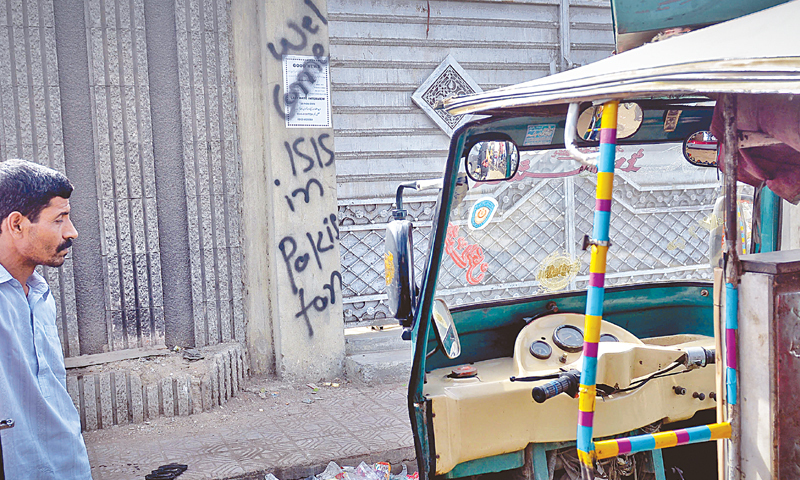M WAQAR..... "A man's ethical behavior should be based effectually on sympathy, education, and social ties; no religious basis is necessary.Man would indeed be in a poor way if he had to be restrained by fear of punishment and hope of reward after death." --Albert Einstein !!! NEWS,ARTICLES,EDITORIALS,MUSIC... Ze chi pe mayeen yum da agha pukhtunistan de.....(Liberal,Progressive,Secular World.)''Secularism is not against religion; it is the message of humanity.'' تل ده وی پثتونستآن
Monday, November 10, 2014
Pakistan - The IS threat
A report prepared by the Balochistan home department and sent by the provincial government to the security agencies has claimed a significant increase in activity by the self-styled Islamic State inside Pakistan.
Since the report became public, the Balochistan government has tried to downplay its contents and senior officials have suggested that there is no real IS problem in Pakistan, at least in Balochistan.
Yet, at the same time as officially denying the existence of IS in Balochistan, the chief minister and home secretary accepted that groups with similar agendas to the IS do exist in the province. And therein lies the problem: IS or no IS, the country’s militancy problem is complex and continuing.
Moreover, while IS may not yet have a substantial presence in Pakistan, the militant landscape here is favourable to its goals in several ways. Many of the key players in the militant groups today have an agenda and set of targets that easily fits within the IS framework. And the IS brand is international, giving a boost to local outfits in their quest for relevance and importance in the crowded world of militancy.
In at least one regard, what the Pakistani state should do is fairly clear: be forthright about the IS threat and the extent of the group’s activity in Pakistan.
Ultimately, the point of militant groups is to be visible, so major ingress by IS, were it to happen, would be known once attacks start occurring and the group began to take responsibility for them. Far better than that would be to have the threat explained beforehand – because tracking the threat would also mean having a strategy to deal with it if and when it explodes in a big way. Yet, the Pakistani state appears to be stuck in an old pattern of confronting the militant threat: do nothing, or very, very little, until the threat grows so big that it is impossible to ignore – and infinitely more difficult to fight back against.
Much the same had happened with Al Qaeda when it began to seek local partners and shape the jihad discourse among militants, giving it an international context and flavour that is significantly more dangerous than localised variants.
Were IS to gain more than a toehold in Pakistan, the perils are fairly obvious: IS could go far beyond what Al Qaeda, Lashkar-i-Jhangvi or even the TTP have achieved here. Which would mean a terrible and even higher price that the Pakistani state and society would have to pay for IS’s existence here. With its overt and ferocious sectarian agenda, an IS in the ascendant could unleash forces within society that are too frightening to even contemplate.
Miss the warning signs now or fail to deny it space within Pakistan now and it may not be long before IS becomes the mother of all militant problems.
Subscribe to:
Post Comments (Atom)


No comments:
Post a Comment